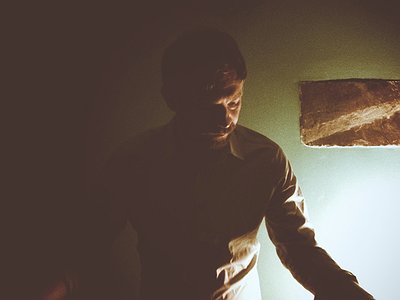Part 2.
How much, do you feel, are creative decisions shaped by cultural differences – and in how much, vice versa, is the perception of sound influenced by cultural differences?
I feel many of my creative decisions are a response to a youth spent at rock gigs and field parties or raves, but we are all the sum of many influences, cultural or otherwise.
The relationship between music and other forms of art – painting, video art and cinema most importantly - has become increasingly important. How do you see this relationship yourself and in how far, do you feel, does music relate to other senses than hearing alone?
The visual aspect is very important to me. As I mentioned above, an image can kick start the whole process. I often come away from a film imbued with a certain mood, and I will try to use that to inform my composition.
There seem to be two fundamental tendencies in music today: On the one hand, a move towards complete virtualisation, where tracks and albums are merely released as digital files. And, on the other, an even closer union between music, artwork, packaging and physical presentation. Where do you stand between these poles?
The costs involved in the production of physical media is prohibitive to most people who don't have a relationship with a label, while the production and distribution costs for digital files are essentially zero.
I'm happy with both scenarios, whilst I love the immediacy of reading about an album, searching it out and purchasing it almost instantly, I also love the physicality of a piece of vinyl.
The role of an artist is always subject to change. What's your view on the (e.g. political/social/creative) tasks of artists today and how do you try to meet these goals in your work?
After becoming a parent, I found that my gaze opened up more to the world we live in, and I started to realise everything is political. By necessity you become less insular, more outward looking. I suppose it's hard to be overtly political when your medium is instrumental music, but I feel that everything I produce is infused with that outlook in some way. There's also the social aspect of playing live shows, often meeting people that were previously only names at the end of an email or behind a Twitter avatar...
Music-sharing sites and -blogs as well as a flood of releases in general are presenting both listeners and artists with challenging questions. What's your view on the value of music today? In what way does the abundance of music change our perception of it?
On a personal level music is as valuable as it's ever been. Obviously it's not as valuable to large record companies, but maybe that's no bad thing.
Concerning the abundance of music available, I think it falls more on the listeners shoulders to seek out interesting/resonant music. It can be hard work but more rewarding also.
How, would you say, could non-mainstream forms of music reach wider audiences?
I have no experience of reaching a large audience, but I started by self releasing music on my Bandcamp page. The act of actually putting an LP up and having people purchase and download gave me the incentive to finish works and let them go.
Usually, it is considered that it is the job of the artist to win over an audience. But listening is also an active, rather than just a passive process. How do you see the role of the listener in the musical communication process?
The role of the listener is ultimately decided by the listener, whether they choose to engage deeply with the music or simply use it as a backdrop to everyday tasks. Once the music is released, that is the end of my influence.
Reaching audiences usually involves reaching out to the press and possibly working with a PR company. What's your perspective on the promo system? In which way do music journalism and PR companies change the way music is perceived by the public?
I think that PR often over sells, but that's understandable, with such an abundance of releases vying for attention.
Sometimes journalism is a little too eager to define groups or movements, and this can stifle creativity.
Visit the Pye Corner Audio blog at pyecorneraudio.wordpress.com






